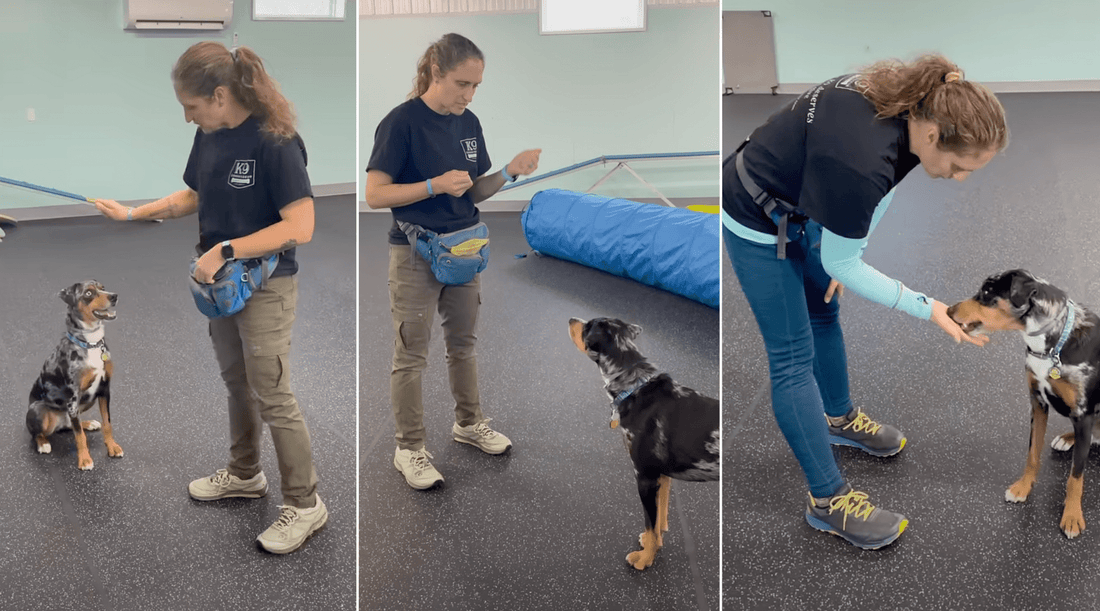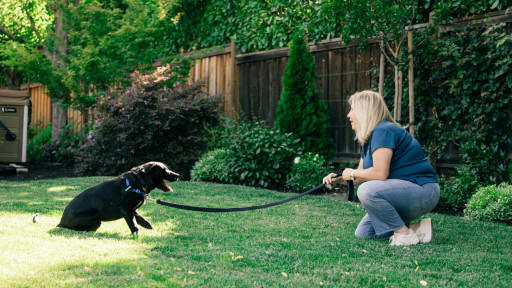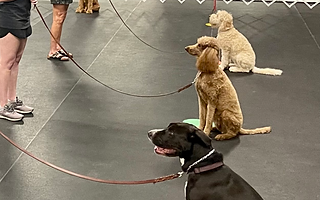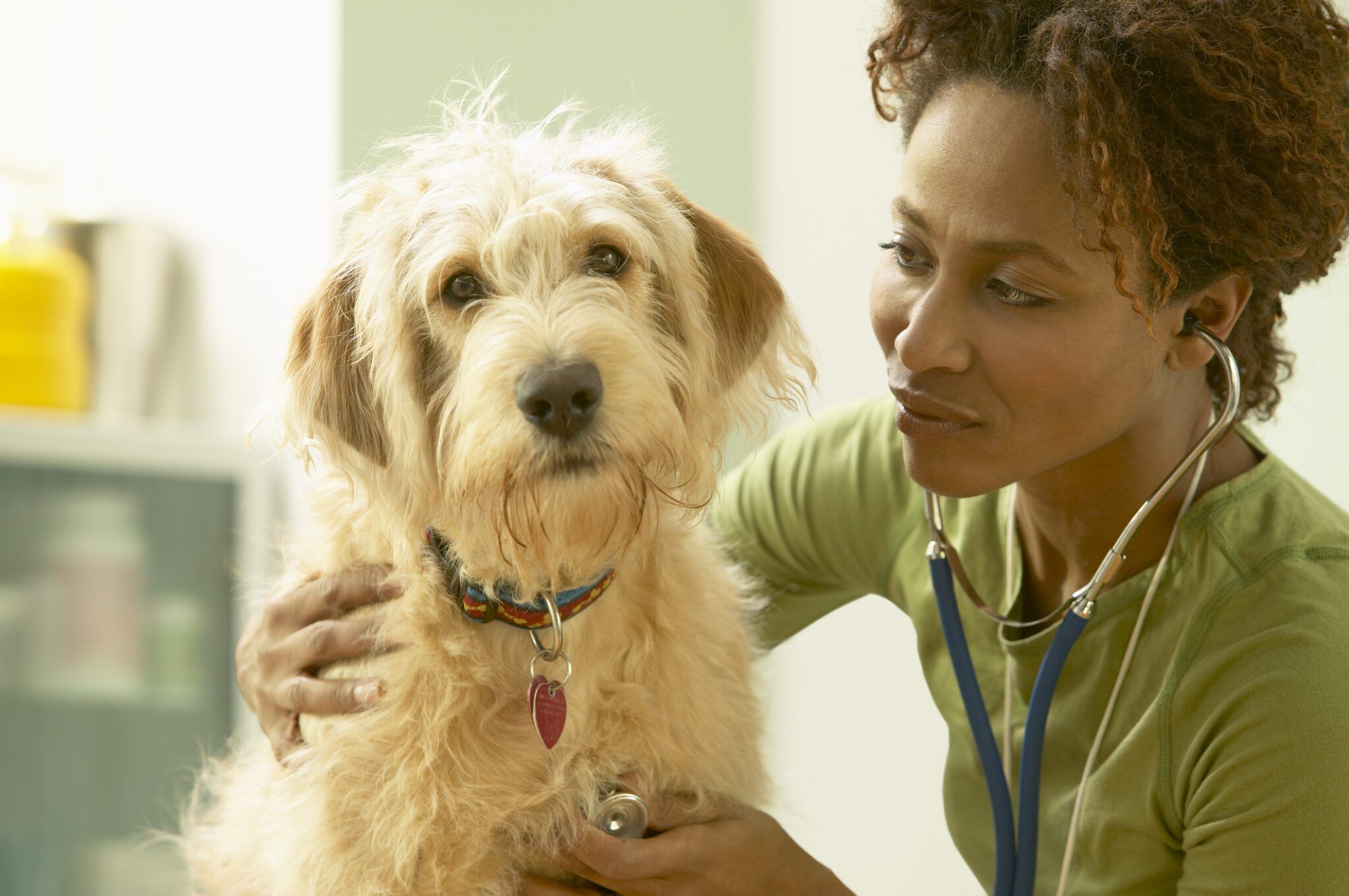You love your dog and want the best for them. But how often should you really take your furry friend to the vet?
Knowing the right schedule can keep your dog healthy and catch problems early before they become serious. If you’ve ever wondered whether a yearly checkup is enough or if more visits are needed, this article is for you. Keep reading to discover the simple, practical advice that will help you make the best choices for your dog’s health and happiness.
Frequency Of Vet Visits By Age
Dogs need vet visits at different stages of life. Their age affects how often they should see the vet. Regular checkups keep dogs healthy and catch problems early.
Young dogs need more frequent visits for vaccinations and growth checks. Adult dogs need yearly exams to maintain good health. Older dogs require more attention to monitor aging issues.
Puppy Vet Schedule
Puppies need many visits in their first few months. These visits include shots, deworming, and health checks. Usually, puppies visit the vet every 3-4 weeks until they are 16 weeks old.
- First visit: 6-8 weeks old
- Follow-up visits: every 3-4 weeks until 16 weeks
- Vaccinations and parasite control
- Spaying or neutering at 6 months
Adult Dog Checkups
Adult dogs should see the vet once a year. These visits focus on overall health and disease prevention. The vet checks weight, teeth, and vaccines during the exam.
- Annual physical exam
- Vaccination updates
- Dental check
- Parasite prevention advice
Senior Dog Visits
Older dogs need vet visits twice a year. Aging dogs face more health risks. These visits help detect arthritis, dental disease, and organ problems early.
- Checkups every 6 months
- Blood tests and X-rays as needed
- Monitor chronic conditions
- Adjust diet and care plans
Routine Vet Exams
Routine vet exams are essential for keeping your dog healthy and catching potential problems early. These visits go beyond just treating illnesses—they help maintain your dog’s overall well-being. Regular check-ups give you a chance to ask questions and learn how to care for your furry friend better.
Annual Physicals
Annual physical exams are the foundation of your dog’s health care. During these visits, the vet checks your dog’s weight, heart, lungs, eyes, ears, and skin. They also look for any unusual lumps or signs of pain.
Think about the last time your vet discovered a small issue before it became serious. These yearly exams can spot problems early, saving your dog from discomfort and costly treatments later.
Vaccination Timelines
Vaccinations protect your dog from dangerous diseases, but timing matters. Puppies usually start their shots at six to eight weeks old, with boosters given every few weeks until they’re about four months.
Adult dogs need regular booster shots, often annually or every three years depending on the vaccine. Your vet can create a vaccination schedule tailored to your dog’s lifestyle and risks.
Have you ever wondered if skipping a booster could put your dog at risk? Staying on schedule is key to keeping your dog safe.
Dental Health Checks
Dental health is often overlooked but vital for your dog’s overall wellness. During routine exams, vets check for tartar buildup, gum disease, and tooth decay.
Left untreated, dental issues can cause pain and lead to infections affecting other organs. You can ask your vet for advice on brushing your dog’s teeth or recommend professional cleanings.
How often do you inspect your dog’s teeth at home? Regular vet checks combined with your care can prevent serious dental problems.
Signs Your Dog Needs A Vet Visit
Knowing when your dog needs a vet visit keeps them healthy and happy. Pets cannot tell us when something hurts or feels wrong. Observing changes in behavior and physical signs can help catch problems early. Recognizing emergencies can save your dog’s life. Watch your dog carefully for signs that require medical attention.
Behavioral Changes
- Sudden aggression or fear
- Loss of interest in activities
- Unusual tiredness or lethargy
- Excessive barking or whining
- Changes in eating or drinking habits
- Restlessness or difficulty sleeping
Physical Symptoms
- Vomiting or diarrhea lasting more than a day
- Persistent coughing or sneezing
- Swelling or lumps on the body
- Difficulty walking or limping
- Red, irritated, or cloudy eyes
- Hair loss or skin sores
- Bad breath or drooling
Emergency Situations
- Difficulty breathing or choking
- Severe bleeding or wounds
- Collapse or unconsciousness
- Seizures or convulsions
- Poison ingestion or toxic exposure
- Sudden severe pain or distress

Credit: www.lilyskitchen.co.uk
Special Considerations For Certain Breeds
Different dog breeds have unique health needs that affect how often they should visit the vet. Some breeds are more prone to specific illnesses or conditions. Understanding these special considerations helps you keep your furry friend healthier and happier for longer.
Breed-specific Health Risks
Certain breeds face health problems more frequently than others. For example, Bulldogs often suffer from breathing issues due to their short noses. Larger breeds like German Shepherds are at higher risk for hip dysplasia and joint problems.
Knowing these risks lets you watch for early signs and schedule vet visits accordingly. If you have a breed prone to heart issues, like Cavalier King Charles Spaniels, more frequent check-ups can catch problems early. How closely do you monitor your dog’s breed-specific health concerns?
Customized Vet Care
Your vet can tailor care plans based on your dog’s breed. This might mean extra screenings, special diets, or more frequent vaccinations. For example, some breeds may need dental care sooner due to their mouth structure.
Work with your vet to create a schedule that fits your dog’s unique needs. Don’t hesitate to ask about preventive steps you can take at home. Customized care helps you avoid surprises and ensures your dog gets the best attention possible.
Preventive Care And Wellness
Regular visits to the vet help keep your dog healthy and happy. Preventive care focuses on stopping health problems before they start. Wellness check-ups track your dog’s growth and spot issues early. These visits form the foundation of a long, healthy life for your pet.
Parasite Prevention
Parasites like fleas, ticks, and worms cause serious health issues. The vet will recommend safe medicines to prevent these pests. Year-round protection is best, especially in warm or humid areas. Regular stool checks catch internal parasites early. Preventing parasites saves your dog from discomfort and disease.
Nutrition And Weight Management
Good nutrition supports your dog’s energy and immune system. The vet can suggest the right food type and amount. Overweight dogs face risks like diabetes and joint problems. The vet helps create a weight plan with proper diet and exercise. Balanced nutrition and healthy weight improve your dog’s quality of life.
Spaying And Neutering
Spaying or neutering prevents unwanted litters and reduces certain health risks. It also lowers the chance of some cancers. These surgeries help control pet populations in the community. The vet will advise the best age for these procedures. Early spaying or neutering promotes better behavior and health.

Credit: www.facebook.com
Preparing For A Vet Appointment
Preparing for a vet appointment helps make the visit smooth and stress-free. Being ready saves time and keeps your dog calm. Simple steps can improve the experience for both you and your pet.
What To Bring
- Any medical records or vaccination history
- List of current medications and supplements
- Your dog’s favorite treats or toys
- A leash and collar or harness
- Sample of your dog’s stool if requested
- Notepad and pen for notes
Questions To Ask
- What vaccinations does my dog need now?
- Are there signs of illness I should watch for?
- How often should I schedule future visits?
- What diet or exercise changes do you recommend?
- How can I help with my dog’s anxiety or behavior?
- What dental care should I provide at home?
Calming Your Dog
Keep your dog relaxed before the visit. Offer gentle petting and speak softly. Bring a favorite blanket or toy for comfort. Try a short walk to expend energy. Avoid feeding a large meal right before the appointment. Stay calm yourself; dogs sense your mood.
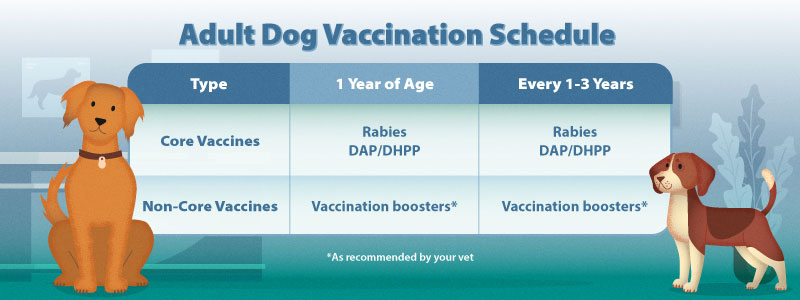
Credit: www.carecredit.com
Frequently Asked Questions
How Often Should My Dog Visit The Vet?
Regular vet visits are crucial for your dog’s health. Puppies need frequent check-ups, typically every three to four weeks. Adult dogs should visit the vet annually, while senior dogs may require biannual check-ups to monitor aging-related health issues.
When Do Puppies Need Their First Vet Visit?
Puppies should have their first vet visit at six to eight weeks old. This initial check-up includes vaccinations, deworming, and a health assessment. Regular visits ensure they grow healthy and strong.
What Signs Indicate My Dog Needs A Vet?
Watch for signs like sudden weight loss, persistent vomiting, and changes in behavior. Difficulty breathing or excessive scratching also warrant a vet visit. Early detection helps in effective treatment.
Can I Delay My Dog’s Annual Vet Visit?
Delaying your dog’s annual vet visit is not advisable. Regular check-ups help detect potential health issues early. They also ensure vaccinations are up-to-date, maintaining your dog’s overall well-being.
Conclusion
Regular vet visits keep your dog healthy and happy. Puppies need more visits for shots and check-ups. Adult dogs should see the vet at least once a year. Older dogs or those with health issues may need visits more often.
Watch your dog for signs of sickness or pain. Early care can prevent big problems later. Trust your vet’s advice for the best care plan. Taking your dog to the vet is a key part of being a responsible pet owner.
Keep your furry friend strong and full of life.

